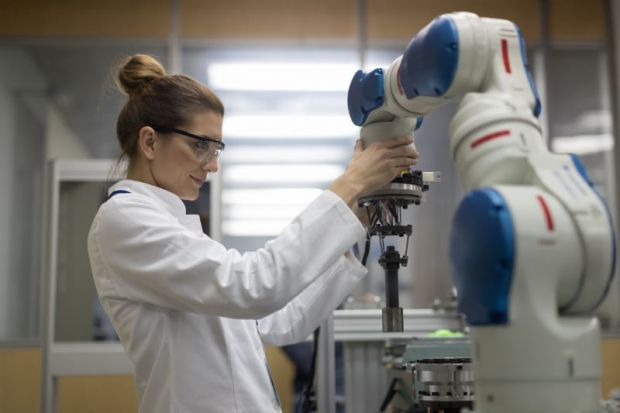Fiona Watt has been named has the government’s preferred candidate to become the executive chair of the Medical Research Council when it moves under the auspices of UK Research and Innovation.
Professor Watt will replace Sir John Savill, who has led the research council since October 2010. He said that Professor Watt was “well-placed to lead the MRC to continuing successes”.
Professor Watt said that she was “deeply honoured” to potentially lead the organisation at a “time of extraordinary opportunity” for biomedical researchers.
UKRI is the new body that will fund research in the UK with a budget of more than £6 billion. It has come into existence under the Higher Education and Research Act and will bring together the UK’s seven existing research councils under one umbrella for the first time.
The councils will sit alongside Innovate UK and Research England, a new council that will represent the research and knowledge exchange functions currently undertaken by the Higher Education Funding Council for England. It will come into being in April 2018.
Professor Watt is a world-renowned expert on the skin’s stem cells. She is currently the director of the Centre for Stem Cells and Regenerative Medicine at Kings College London and leads a team of 80 researchers.
[nid:614568]]
Professor Watt said: “I am deeply honoured to be selected as the government’s preferred candidate to lead the MRC at this time of extraordinary opportunity for the UK’s biomedical researchers.”
Sir Mark Walport, UKRI chief executive designate, said that Professor Watt was a “distinguished biomedical scientist” who will be an “outstanding leader”. “I am delighted she has been selected as the government’s preferred candidate for the role of MRC executive chair,” he added.
Sir John will become Regius professor of medical science at the University of Edinburgh in April.
Commenting on the announcement of his successor, Sir John said: “Fiona is an outstanding scientist and will bring many new ideas to MRC and UKRI, strengthening still further MRC’s commitment to discovery science for human health. She is a wonderful role model for many younger biomedical scientists in the UK medical research community.”
“As the MRC enters its second 105 years as part of UKRI, I am sure that Fiona is well placed to lead the MRC to continuing successes.”
Her appointment may be subject to a pre-appointment hearing by MPs on the House of Commons Science and Technology Committee.
Register to continue
Why register?
- Registration is free and only takes a moment
- Once registered, you can read 3 articles a month
- Sign up for our newsletter
Subscribe
Or subscribe for unlimited access to:
- Unlimited access to news, views, insights & reviews
- Digital editions
- Digital access to THE’s university and college rankings analysis
Already registered or a current subscriber? Login





